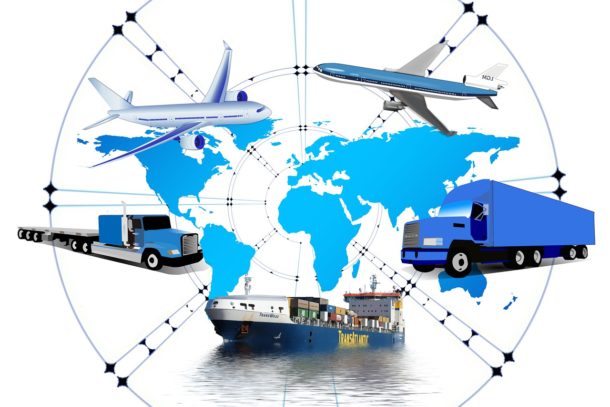Logistics companies today are under pressure to keep up with the ever-changing digital age. Technology has disrupted the logistics industry, and those who don’t adapt will quickly be left behind. This guide will discuss managing your logistics company in a digital age effectively. We’ll cover everything from technology trends affecting the industry to tips on optimizing your operations for efficiency. So if you’re looking to stay ahead of the curve, read on!

1) Technology Trends That Are Impacting The Logistics Industry
Today, technology is impacting the logistics industry more than ever before. From GPS tracking and real-time data to automated warehouses and drones, several new trends are changing the way logistics companies operate. Therefore, it’s crucial to stay up-to-date on these trends to adapt your operations accordingly. Here are a few of the most important technology trends that you should be aware of:
GPS Tracking: GPS tracking has become increasingly commonplace in the logistics industry. By tracking vehicles in real-time, companies can optimize routes for efficiency and improve customer service by providing accurate ETAs.
Real-Time Data: Along with GPS tracking, many logistics companies now use real-time data to make decisions. This data can track trends, optimize routes, and predict customer demand.
Automated Warehouses: Automated warehouses are becoming more popular as they can help to improve efficiency and accuracy. Using robots and other automated systems, these warehouses can operate 24/ hours a day with little to no errors.
Drones: Drones are used for various purposes in the logistics industry, from making deliveries to inspecting warehouse inventory. While there are still some regulatory hurdles to overcome, we’ll likely see more widespread use of drones in the coming years.
As you can see, many new technology trends are impacting the logistics industry. By staying up-to-date on these trends, you’ll be able to adapt your operations accordingly.
2) Tips For Optimizing Your Logistics Operations
To effectively manage your logistics company in a digital age, optimizing your operations is crucial. There are a number of ways to do this, but here are a few of the most effective tips:
Invest In Technology: As we discussed above, technology is playing an increasingly important role in the logistics industry. If you want to stay ahead of the competition, investing in the latest technologies is important. This can help you improve efficiency and offer a better service to your customers.
Outsource Non-Core Activities: To focus on your core competencies, it’s often helpful to outsource non-core activities. This can free up time and resources to be better spent on other areas of your business.
Streamline Your Processes: Streamlining your processes is a great way to improve efficiency and reduce costs. In addition, streamlining your operations can eliminate waste and make it easier for your team to get the job done.
3) The Future Of Logistics
The logistics industry is constantly changing, and it’s vital to stay ahead of the curve. This section will discuss some of the most important trends shaping logistics’ future.
Data-Driven Decision Making: As data becomes more accessible, many companies are turning to data-driven decision-making. By using data to make decisions, companies can improve efficiency and make better long-term decisions.
Omnichannel Distribution: With the rise of eCommerce, omnichannel distribution has become increasingly important for logistics companies. This means being able to ship orders from multiple channels (online, brick-and-mortar, etc.) from a single location.
Artificial Intelligence: Artificial intelligence is starting to play a role in the logistics industry, from route optimization to customer service. As AI technology develops, we’ll likely see even more widespread use of AI in logistics.
4) Scheduled Vehicle Maintenance
It’s essential to keep your vehicles well-maintained if you want to avoid costly repairs and downtime. By scheduling regular maintenance with a professional team like M&L Truck Service, you can catch problems early and prevent them from becoming more serious.
How often you need to service your vehicles will depend on several factors, such as how many miles they’re driven each year. However, most experts recommend that your vehicles be serviced at least once a year.
During a vehicle service, a technician will inspect the vehicle for potential problems and perform necessary maintenance tasks. This can include changing the oil, checking the brakes, and flushing the coolant system.
By keeping up with scheduled maintenance, you can extend the life of your vehicles and avoid costly repairs.
5) Hiring And Training Employees
If you want to manage your logistics company effectively, having a strong team is crucial. This section will discuss some tips for hiring and training employees.
When hiring new employees, looking for people with the right skills and attitude is important. However, this can be difficult, so you may need to spend some time interviewing a number of candidates before making your final decision.
Once you’ve hired new employees, providing them with adequate training is important. This will help them understand their role within the company and how they can contribute to its success.
6) Measuring Performance
To manage your logistics company effectively, you need to measure performance. This can help you identify areas that need improvement and track your progress over time.
You can use several different metrics to measure performance, such as on-time delivery rate, customer satisfaction, and cost per unit. You’ll need to decide which metrics are most important for your business and track them on a regular basis. By measuring performance, you can ensure that your logistics company is running smoothly and progressing towards its goals.
7) Improving Efficiency
If you want to improve the efficiency of your logistics company, there are many things you can do. One way to improve efficiency is to streamline your processes. This can involve things like automating tasks, using technology to track shipments, and eliminating unnecessary steps. Streamlining your processes can reduce waste and make it easier for your team to get the job done.
You can do some things to manage your logistics company in a digital age effectively. By following the tips in this guide, you can improve efficiency, make better decisions, and ensure that your business is successful.




Join the conversation: